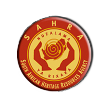Primary tabs
THIS IS THE ARCHIVE FOR SAHRIS 1.0
THIS SITE IS NOW AN ARCHIVE AND IS NOT SUITABLE FOR MAKING APPLICATIONS
Please be aware that no content and application creation or changes to information on this version of SAHRIS will be retained.
To make applications or utilise SAHRIS for the creation of information, please use the new site:
https://sahris.org.za
Changes to SAHRIS!
The South African Heritage Resources Information System (SAHRIS) has undergone a generational upgrade and restructure. These changes to the site include, but are not limited to:
- A new & modernised look and layout
- Improved site usage flows with respect to applications and content creation
- Improved site performance and stability
Launch for the new version of SAHRIS occurred on Monday the 30th of October 2023.
The new site can be found here:
SAHRIS | SAHRIS
9/2/228/241
- 1325 reads
Group
Post date: 15/10/2013
Directions:
Newclare cemetery is located at Region B, Zone 3 Corner of Maraisburg and Commando roads, Bosmont Johannesburg
Newclare cemetery is located at Region B, Zone 3 Corner of Maraisburg and Commando roads, Bosmont Johannesburg

Rahima Moosa was born in the Strand, Cape Town on 14 October 1922. She attended Trafalgar High School in Cape Town. As a teenager, Rahima and her identical twin sister, Fatima became politically active after they became aware of the unjust segregationist laws that ruled South Africa. In 1943 Rahima became the shop steward for the Cape Town Food and Canning Workers’ Union. She later became the branch secretary for the union and more active in labour politics. In 1951 she married Dr. Hassen “Ike” Mohamed Moosa, a fellow comrade and Treason trialist. She moved to Johannesburg with her husband and together they had four children.
In Johannesburg, Rahima became involved with the Transvaal Indian Congress and thereafter the African National Congress as the Congress and the ANC had signed a pact for a common struggle. In 1955 she played a significant role in the organisation of the Congress of the People, where the Freedom Charter was adopted. In 1956, while pregnant with her daughter, Natasha, she helped organise the Women’s March, under the auspices of the Federation of South African Women (FEDSAW). Together with Helen Joseph, Lillian Ngoyi and Sophia Williams, Rahima spearheaded the historic march to the Union Buildings where women handed over petitions against pass laws. Rahima and her twin sister Fatima always managed to confuse the security branch officer as they could easily switch identities, in times of harassment.
In the early 1960s, Rahima became listed, a status that she remained in until 1990 with the unbanning of the African National Congress. In 1970 she suffered a heart attack, as a result of diabetes and after this her health detoriated drastically until her death in 1993, a year before independence. Before passing away, she made it a point that her children would continue her work for a just South African Society, her children have since been active in the ANC and her husband, though old is also active in political work.